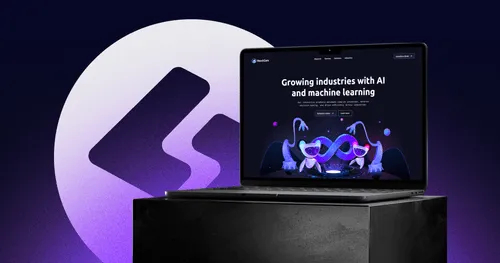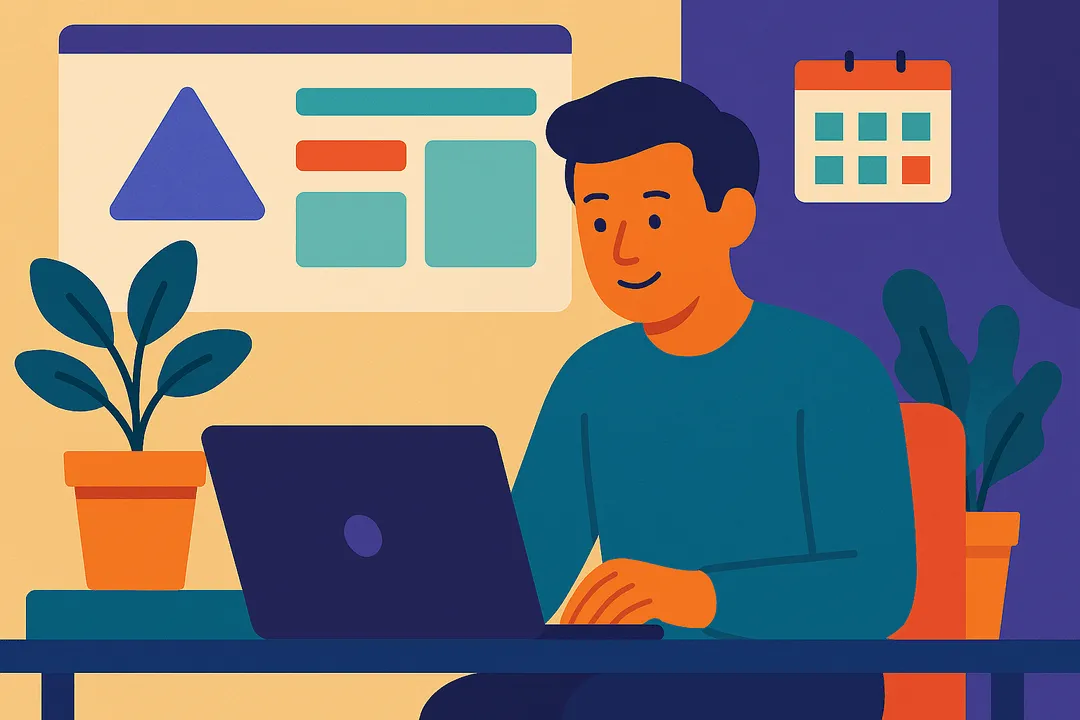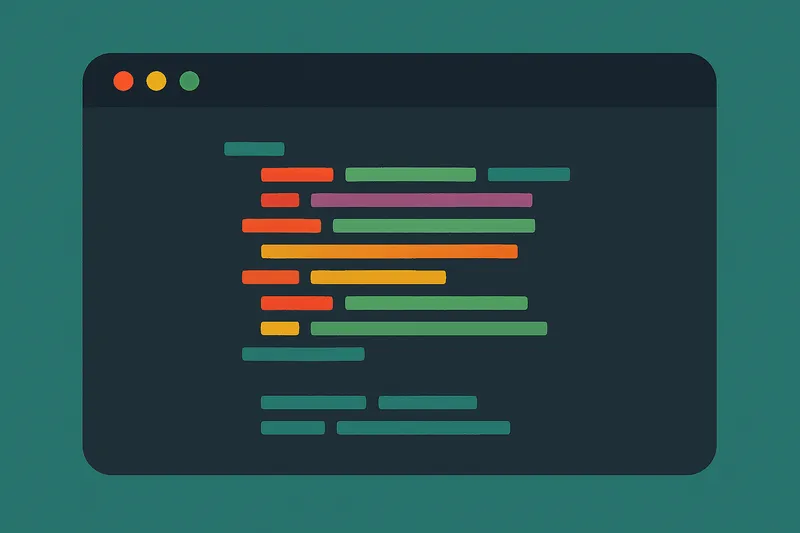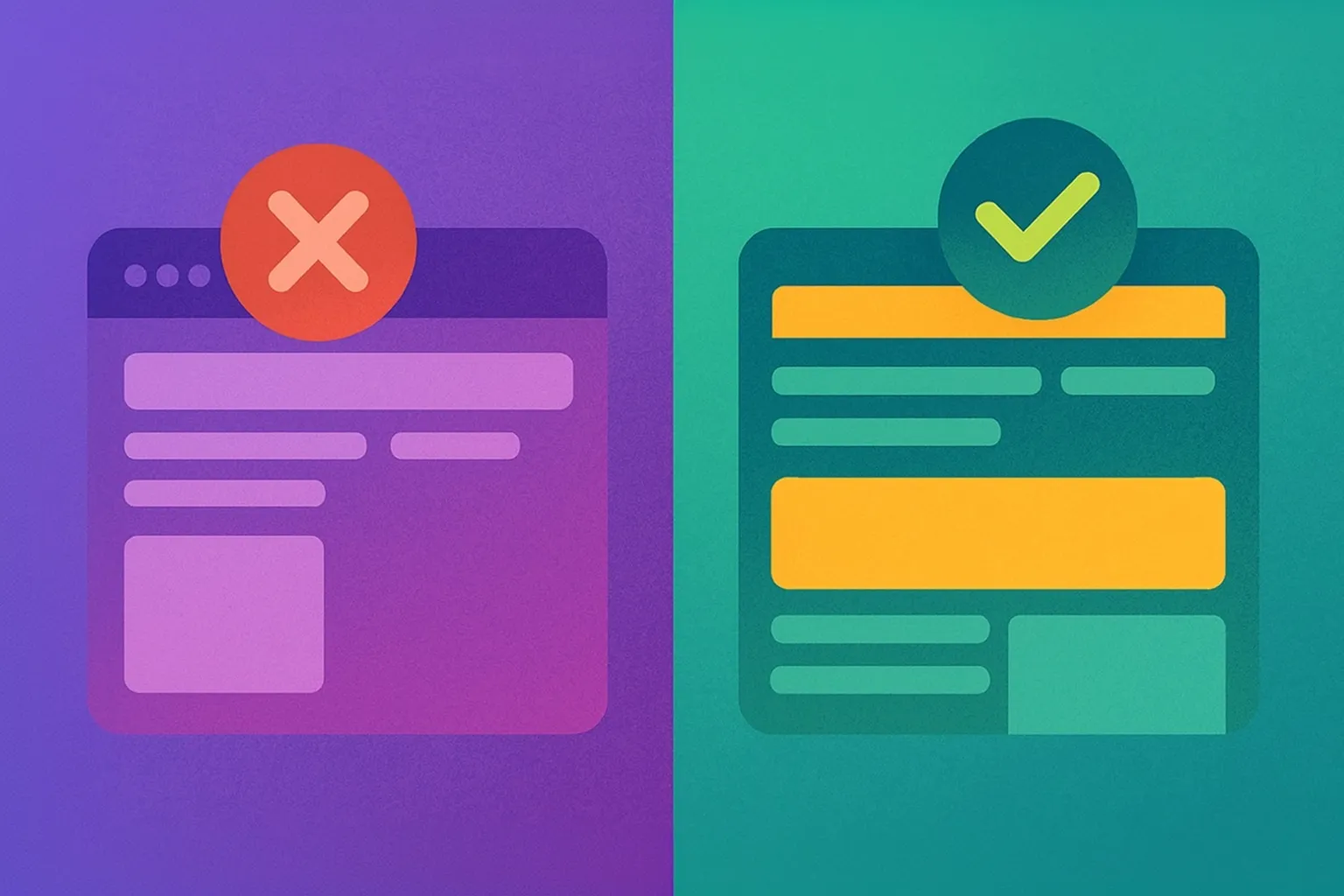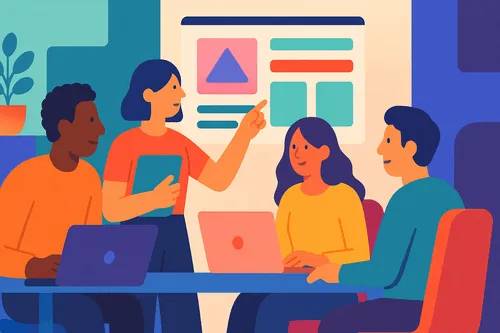

Freelance Web Design VS. Working for an Agency

Stop me if this sounds familiar—you’ve been freelancing for a while, enjoying the freedom of choosing your projects and setting your schedule. But sometimes, you can’t help but wonder if the financial stability of a 9-to-5 at a web design agency might bring more peace to your life. Or maybe you’re at an agency, daydreaming about the creative autonomy and flexibility that freelancers seem to enjoy.
As someone who’s worked both sides of this fence—freelancing and working for small and large companies alike—I know how tempting both paths can be. Freelancing gives you the power to be your own boss, to pick the projects that excite you, and to craft your own schedule. But, as many freelancers will tell you, it can also be a wild ride of unpredictable paychecks and uncertainty.
On the flip side, working for an agency offers structure, teamwork, and a steady paycheck. It’s great if you thrive in a collaborative environment, but agency life can also come with its own challenges, like office politics, less creative freedom, and long hours.
So, how do you decide which path is right for you? In this post, you’ll get a clear breakdown of the pros and cons of freelancing versus working for an agency. By the end, you’ll be better equipped to figure out which direction fits your goals, work style, and lifestyle best.
The Pros of Freelancing
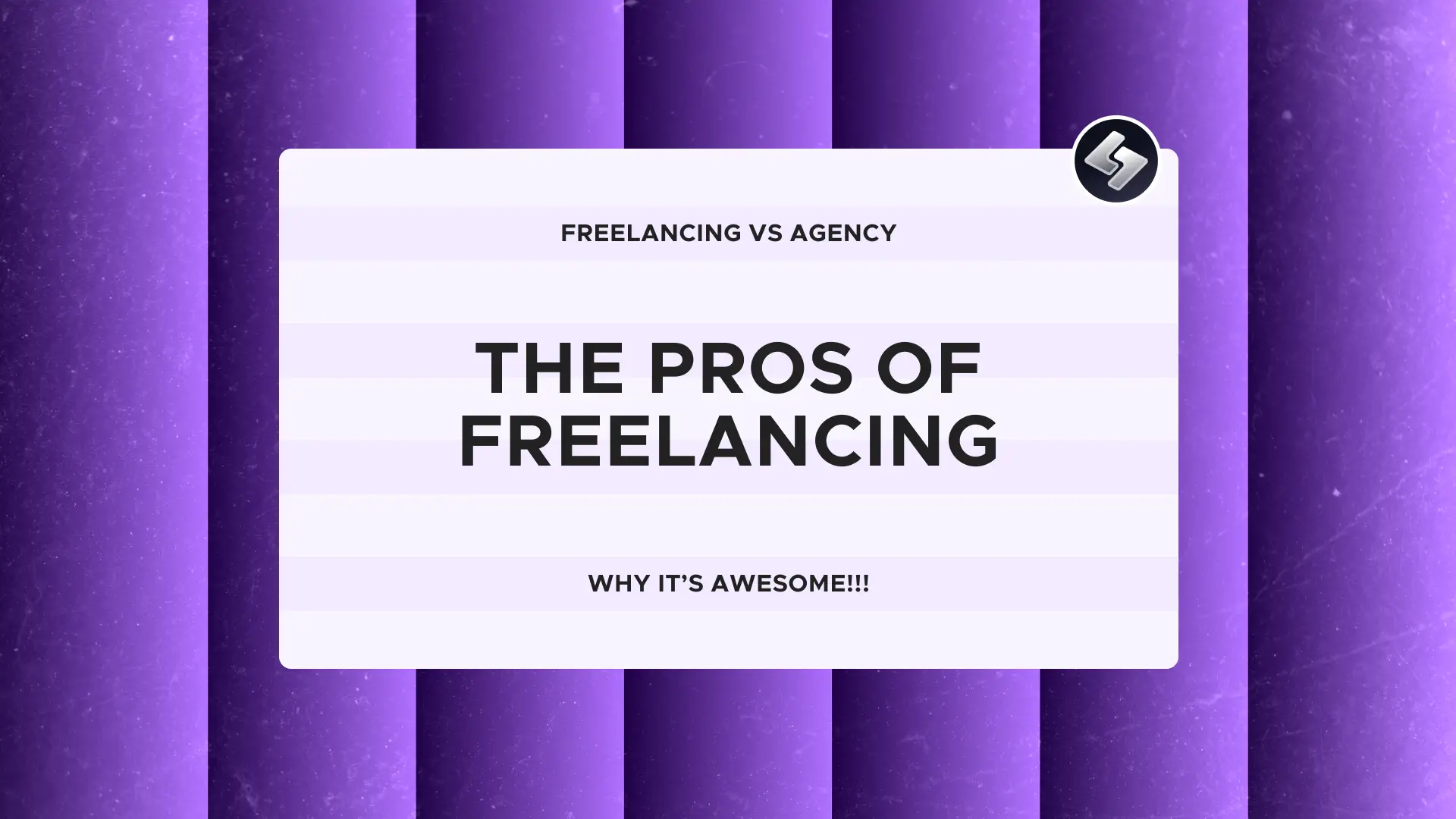
Flexibility and Independence
One of the biggest perks of freelancing is the control it gives you over your work-life balance. Whether you’re someone who gets your best ideas at 3 AM or prefers a steady morning routine, freelancing lets you work when you’re most productive. You can choose to work from home, your favorite coffee shop, or even while traveling. It’s perfect if you value the ability to step away from the typical 9-to-5 grind.
Imagine waking up and deciding what your day looks like: a couple of hours of deep focus on a new design, followed by an afternoon hike, or maybe a long weekend away when the workload is light.
That level of freedom is rare when you’re tied to an agency’s schedule.
Higher Earning Potential (In the long term)
While freelancing can be risky, there’s also the potential for much higher earnings compared to a fixed salary. As a freelancer, you set your own rates, and as you build a strong portfolio, you can take on higher-paying clients or bigger projects. You also have the freedom to take on multiple clients at once, which can boost your income beyond what you might earn at an agency.
Of course, it’s not always smooth sailing. In the early days, you might struggle to find enough work or land clients that pay well. But with persistence, networking, and a growing reputation, freelancers often find themselves in a position to out-earn their salaried counterparts. Plus, there’s nothing quite like the thrill of closing a big contract and seeing all your hard work pay off—sometimes literally in the form of a hefty paycheck.
Diverse Project Opportunities
As a freelancer, you’re not tied to one company’s clients or projects. You get to work on a wide variety of tasks across different industries, which keeps things fresh and allows you to constantly learn new skills. One month, you might be working on a sleek portfolio site for a photographer, and the next, you’re designing a user-friendly interface for a healthcare app.
Freelancing also gives you the opportunity to partner with agencies (Yes, you can still work for agencies as a freelancer!) or take on contract work during slower periods. These collaborations often lead to high-quality projects and competitive pay, all while still giving you the freedom to set your schedule and focus on the work that excites you.
This diversity not only makes your workday more interesting but also helps you build a well-rounded portfolio, which can attract a wider range of future clients or partnerships. You’re constantly challenged to adapt to new industries and opportunities, which keeps your skills sharp and your creativity flowing.
Creative Control
If creative freedom is important to you, freelancing offers plenty of it. You’re in charge of the creative direction of your projects, allowing you to fully express your design style without the constraints of agency or client guidelines. Sure, you’ll still have to meet your client’s needs, but how you get there is much more in your hands.
Imagine not having to navigate endless revisions or office politics to get your vision approved. Freelancing lets you focus on the work you love and make key decisions on your own terms. This kind of artistic autonomy can be hugely rewarding, especially if you value personal expression in your work.
The Cons of Freelancing
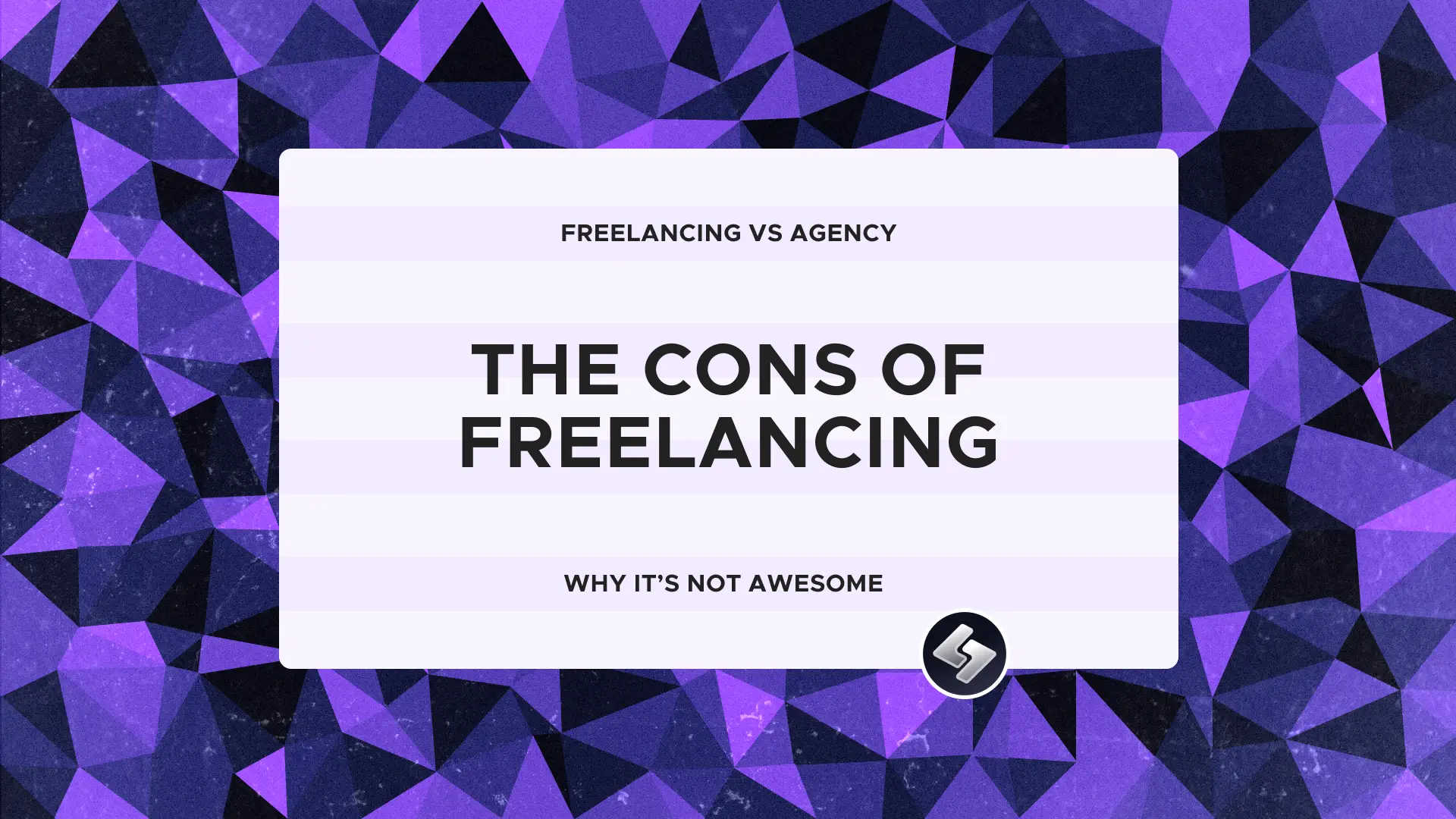
Income Inconsistency
One of the biggest challenges of freelancing is the unpredictable income. Unlike a steady paycheck from a full-time job, freelancing can bring financial uncertainty. Some months, you may land several big projects and feel on top of the world; other months, you might struggle to find enough work to pay the bills. Especially when you're just starting out, it can be hard to maintain a steady flow of income.
Managing cash flow becomes a balancing act, and budgeting during dry spells can be stressful. If you're not prepared for the ups and downs, the inconsistency can become a major hurdle. It takes time to develop a network of clients and a system that keeps projects coming in consistently.
Lack of Benefits
One significant downside to freelancing is the absence of traditional employee benefits. Freelancers don’t get employer-provided health insurance, retirement plans, or paid time off. All of those perks you might take for granted in a regular job? You’ll have to handle them yourself as a freelancer.
This means you'll need to factor in the cost of health insurance, set up your own retirement accounts, and figure out how to save for vacations or sick days. It adds an extra layer of responsibility, and it can feel overwhelming—especially if you're juggling those tasks with your client work.
Isolation and Loneliness
Freelancing often means working alone. While that might sound appealing at first—no more office politics, difficult coworkers, or constant interruptions—it can get lonely over time. Without the daily social interactions that come with a traditional office environment, it’s easy to feel isolated.
For some, the quiet is great for focusing. But for others, the lack of collaboration and team camaraderie can be tough on their mental health. You might find yourself missing the brainstorming sessions or the casual conversations with coworkers. To combat this, many freelancers turn to co-working spaces or online communities to connect with others in their field.
As for me, I still really enjoy working solo most days. Instead of relying on an office environment for social interaction, I prioritize spending time with my friends and loved ones as much as possible. And when I need a break from the screen, I stay social through my hobbies—whether I’m playing music or rock climbing, it helps me maintain a healthy balance and keeps me connected.
Administrative Responsibilities
As a freelancer, you’re not just a designer & developer—you’re also the accountant, the project manager, and the salesperson. Handling all the administrative tasks like invoicing, contracts, and client communication can be time-consuming and distract you from the actual work you love doing.
On top of that, you'll need to manage taxes, track expenses, and stay on top of deadlines. These extra tasks can pile up quickly and leave you feeling like you're juggling a million things at once. Thankfully, there are many tools for invoicing and time tracking that can help streamline these responsibilities, but it still requires discipline to manage it all.
If you need some tips to manage your time, check out my detailed article on managing your time as a freelancer.
The Pros of Working for an Agency
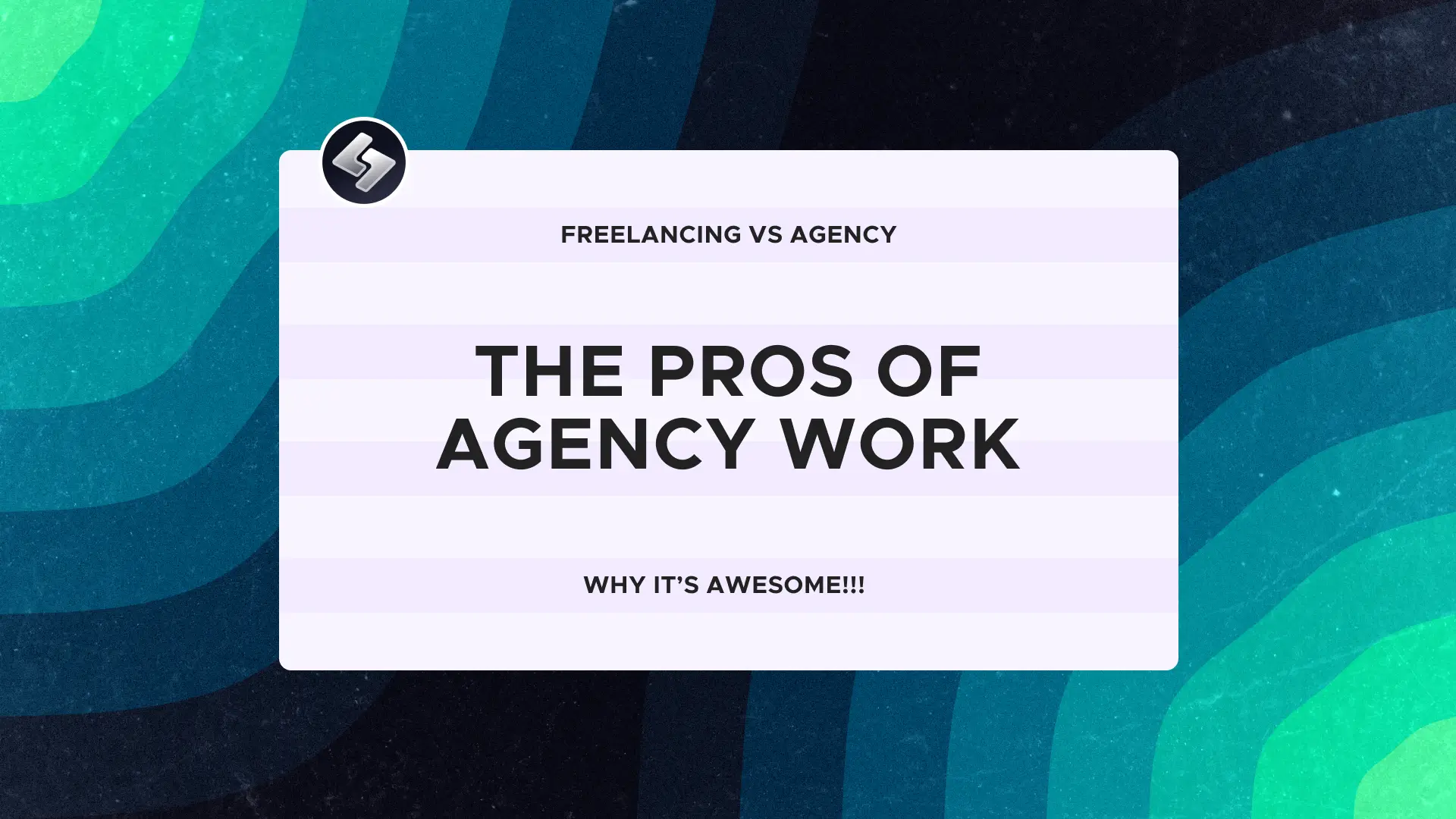
Stable Income and Benefits
One of the biggest draws of working for an agency is the stability it offers. You get a regular paycheck, and with that comes financial predictability—something that freelancers often miss. In addition to a steady income, most agencies offer benefits like health insurance, retirement plans, and paid vacation days. These perks can make a big difference in your overall quality of life, especially if you’re someone who values security and peace of mind.
Knowing that you’re guaranteed a paycheck at the end of each month can reduce a lot of the stress that comes with freelancing. It’s nice to be able to plan your finances without wondering when the next payment will come in.
Collaborative Environment
Working at an agency means you’re part of a team. You get to collaborate with other designers, developers, and project managers on a daily basis. This kind of teamwork not only makes the creative process more dynamic, but it also exposes you to different perspectives, ideas, and skill sets. The collaborative environment can be a big plus if you thrive on bouncing ideas off others or learning from your peers.
Agencies are also a great place to find mentorship and guidance from more experienced professionals. You have the opportunity to learn from those around you, whether it’s improving your design skills or understanding the business side of things.
Plus, you'll likely get the chance to work on some pretty sweet projects for big names in the industry!
Professional Development
Most agencies invest in their employees' growth. They may offer professional development opportunities such as workshops, courses, or conferences that help you build new skills and stay current with industry trends. Some agencies even have structured career paths, allowing you to move up the ladder into more senior roles over time.
If you’re someone who values clear opportunities for growth and advancement, working for an agency can offer that structure. Agencies tend to be invested in your long-term success and are more likely to provide training and resources to help you develop as a professional.
Focus on Design or Development Work
At an agency, you’ll have the support of administrative and project management teams, which means you get to focus more on what you love—designing, developing, or both. You won’t have to worry about handling client communication, chasing invoices, or managing contracts. Instead, you can spend more time being creative or solving problems and less time dealing with the administrative tasks that often come with freelancing.
This structure allows you to dive deeper into your projects without the distractions of running a business. For many web designers, having that creative focus is one of the biggest advantages of working at an agency.
The Cons of Working for an Agency
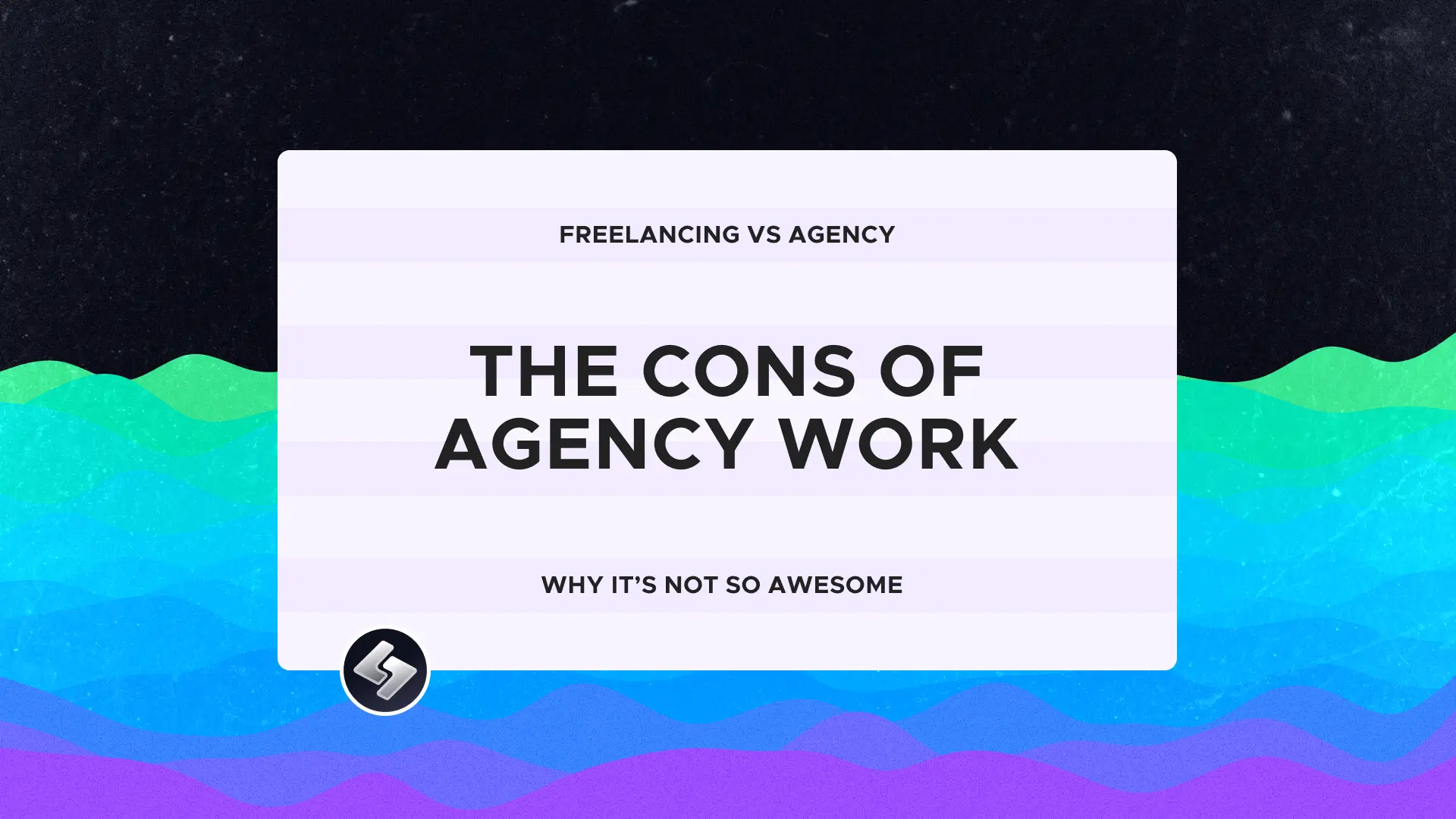
Less Flexibility
One of the biggest drawbacks of working for an agency is the lack of flexibility. You’re typically expected to stick to a fixed schedule, whether that’s a traditional 9-to-5 or something similar. Unlike freelancing, where you can set your own hours and choose your projects, agency work usually comes with less control over your time. You may need to be in the office (or logged on remotely) during specific hours, and the projects you work on are often assigned to you rather than chosen.
For some, the structure is helpful, but for others, it can feel restrictive—especially if you prefer having control over your schedule or want the freedom to step away during the day for personal activities.
Lower Earning Potential (In the long term)
While agencies provide a stable income, the potential for earning big, especially early on, is often lower compared to freelancing. Your salary might be fixed, with limited room for negotiation or growth in the short term. Freelancers, on the other hand, have the opportunity to take on multiple clients or high-paying projects, giving them more control over their earnings.
It’s also worth noting that agency jobs can be more predictable in terms of raises and bonuses, but that predictability can sometimes mean slower financial growth compared to the flexibility and risk-reward of freelancing.
Creative Constraints
At an agency, you’re often working within the constraints of client guidelines or the agency’s specific design processes. While freelancing allows you to have creative control over your projects, agency work might require you to follow a more structured approach. You’ll likely need to balance your creative vision with what the client or agency leadership expects.
This can sometimes limit your ability to fully express your creativity, as final decisions are often made by higher-ups or clients. If you enjoy having full control over your designs and pushing the boundaries of creativity, this aspect of agency work can feel limiting.
Office Politics and Bureaucracy
Agencies often come with their own internal dynamics, including office politics and bureaucratic processes. Navigating these can be challenging, especially in larger agencies where hierarchical structures are in place. Decision-making might be slower, with multiple layers of approval needed before projects can move forward.
This environment can sometimes be frustrating, particularly if you’re used to working more independently. It’s not uncommon to find that projects get bogged down by red tape or that interpersonal dynamics affect the flow of work.
Making the Decision: Which Path is Right for You?
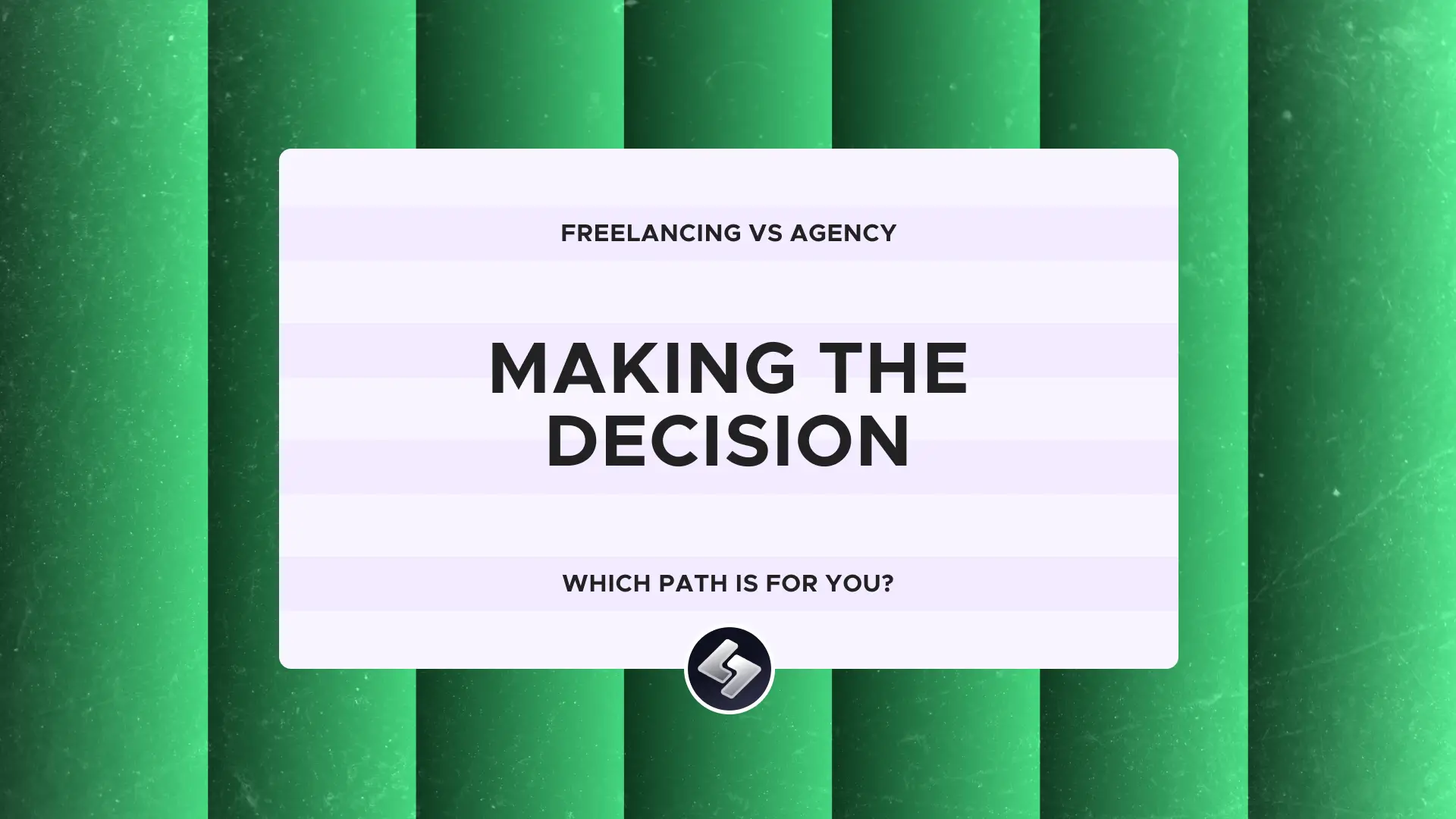
Assessing Your Priorities and Goals
When it comes down to deciding between freelancing and working for an agency, the key is to assess what matters most to you. Do you crave freedom and creative control, or do you value stability and collaboration? Each path has its own set of trade-offs, and the best choice depends on your personal priorities.
If flexibility and being your own boss are top priorities, freelancing may be the better fit. On the other hand, if financial security and consistent work are what you’re after, an agency job might be the safer choice. There’s no right or wrong answer—it’s about aligning your career with what you value most in life.
For me, what matters most is having the freedom to pursue my passions—like playing music and traveling for gigs, spending quality time with friends and family, and exploring my hobbies on my own schedule. Making a steady income is important, but it's not my top priority. That’s why freelancing fits my lifestyle best.
Understanding Your Work Style
Another important factor to consider is your work style. Do you thrive in a collaborative environment, surrounded by a team, or do you prefer working independently? Freelancing requires self-discipline, the ability to manage your own time, and handling all the responsibilities of running a business. It can be incredibly rewarding, but it’s not for everyone—especially if you find motivation in working alongside others or appreciate the structure of a team.
Working for an agency, on the other hand, provides that built-in collaboration. You’ll be part of a team with access to mentors and support systems. If you enjoy bouncing ideas off of others and working in a more structured environment, agency life might be a better match for your style.
Evaluating Financial Considerations
Money plays a big role in this decision, too. Freelancing can potentially lead to higher earnings, but it comes with financial uncertainty. You have to be prepared for periods of inconsistent income, especially in the beginning. Budgeting becomes essential, and managing your own benefits—like health insurance and retirement—adds extra responsibilities.
Agency work, while potentially offering less room for high earnings, provides the security of a steady paycheck, benefits, and paid time off. It’s a reliable choice if financial stability is your priority, but you may need to weigh that stability against the potential for higher earnings in the freelance world.
Exploring Hybrid Options
If you’re torn between both paths, it’s worth considering a hybrid approach. Many web designers choose to freelance part-time while working for an agency, allowing them to enjoy the benefits of both worlds. This can provide the stability of a regular paycheck while giving you the freedom to explore freelance projects on the side.
Freelancers also often collaborate with agencies, working on contracts for specific projects. This can be a great way to enjoy the perks of agency work—like working with a team and taking on larger projects—without committing to a full-time role. The flexibility to transition between freelancing and agency work over time can help you adapt to changing goals and priorities in your career.
A Few Real-world Scenarios to Help You Decide
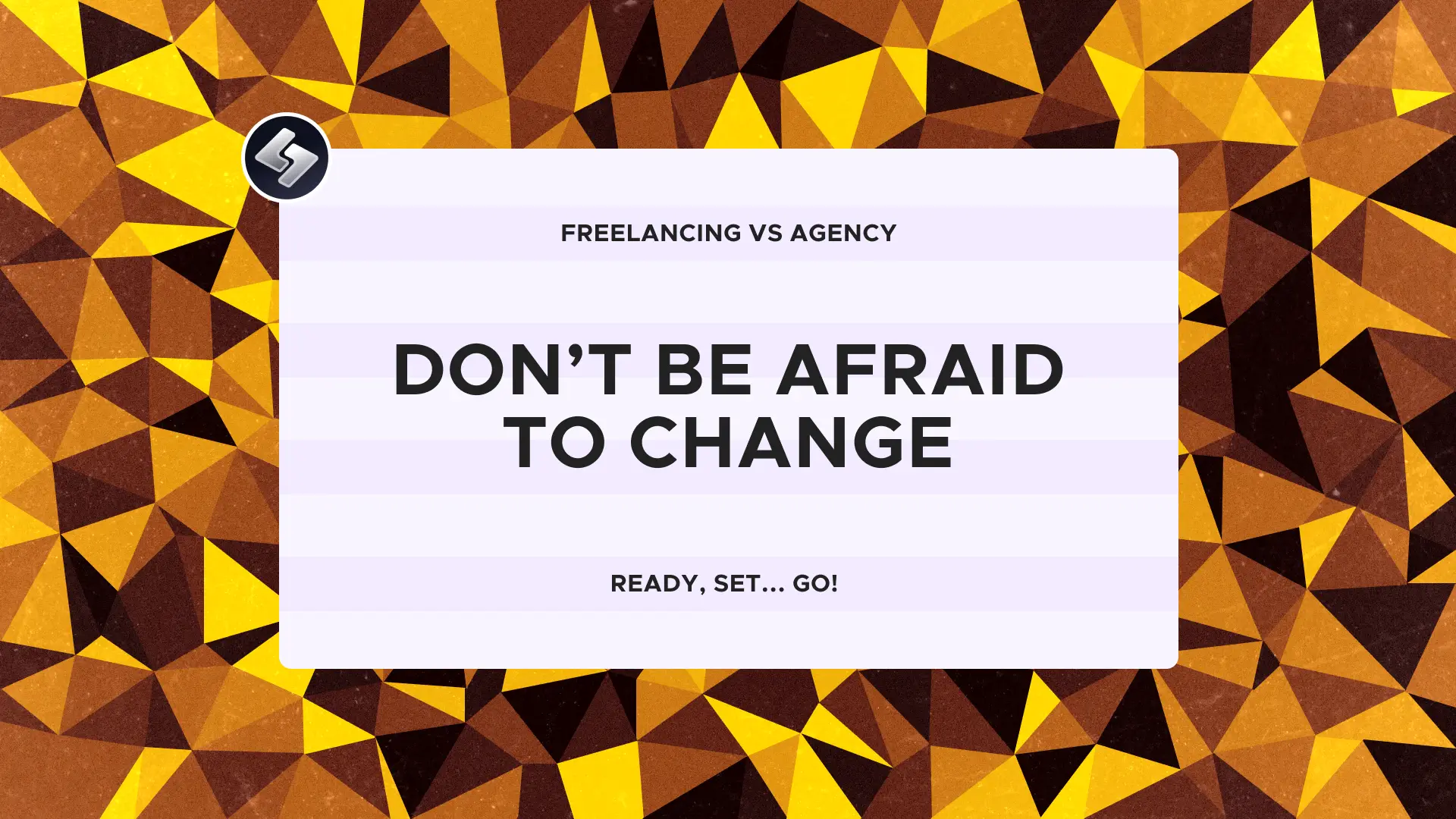
Both freelancing and working for an agency come with their own unique pros and cons. Freelancing offers the freedom to choose your own projects, set your schedule, and potentially earn more—but it also comes with the challenges of income instability and handling everything yourself. On the other hand, agency work gives you stability, a collaborative environment, and room for professional growth, but with less flexibility and creative control.
So how do you decide which path is right for you? It really comes down to your personal situation and what you want out of your career.
Some Scenarios That May Fit Your Situation
- Are you currently freelancing and enjoying it, but the money just isn’t coming in? I’d say stick with it a little longer. Stay curious, keep learning, and continue reaching out to others. With time, persistence, and dedication, things often start to fall into place. As long as you're making ends meet, there's no reason you can't keep trying, right?
- Maybe you've been freelancing for a while but are craving the structure and peace of mind that an agency provides. There’s no shame in making that change—it’s not a failure to shift directions if that’s what you need for balance in your life.
- Or perhaps you’re working for an agency, feeling proud of the work you do, enjoying the camaraderie, but wishing you had more free time. It might be worth staying with the agency while seeking some flexibility in your schedule. Sometimes, finding that balance is as simple as having a conversation with your manager.
- And if you're like I once was—feeling trapped in a big company, like every day is the same and you crave something more exciting and freeing—don't be afraid to take the leap. Freelancing could be the best decision you ever make for your career and personal freedom.
At the end of the day, the choice is deeply personal. By reflecting on your goals, work style, and what truly makes you happy, you’ll find the path that fits you best.
If you're still unsure, feel free to reach out—I'd love to help you navigate this decision.
More recent insights



